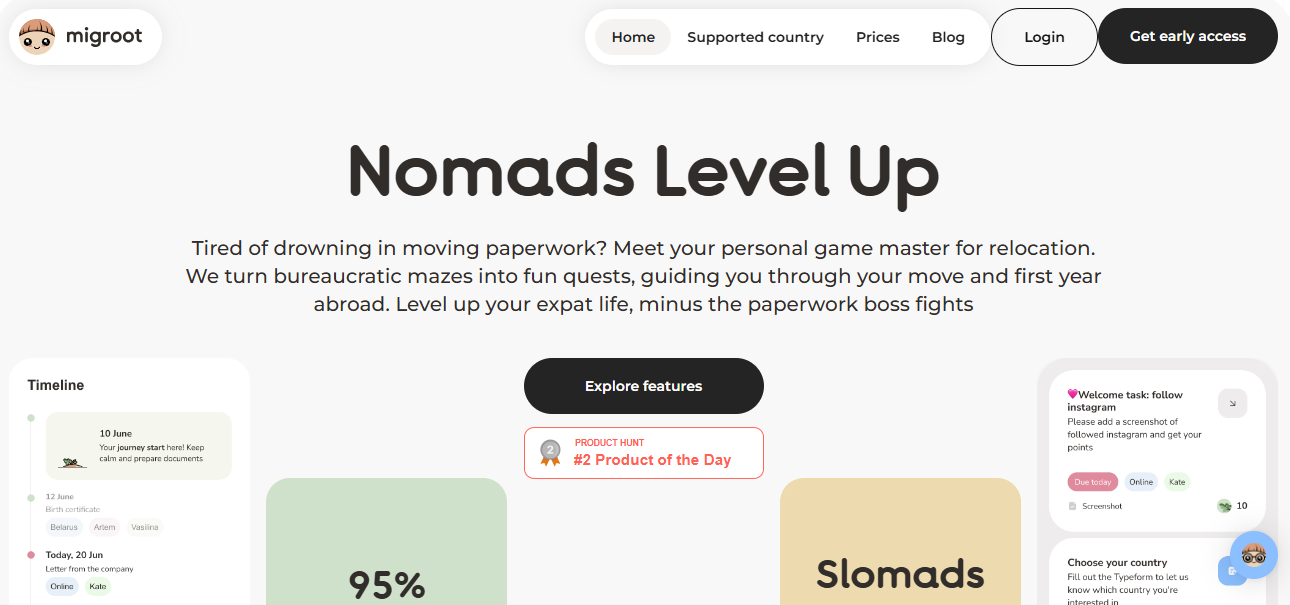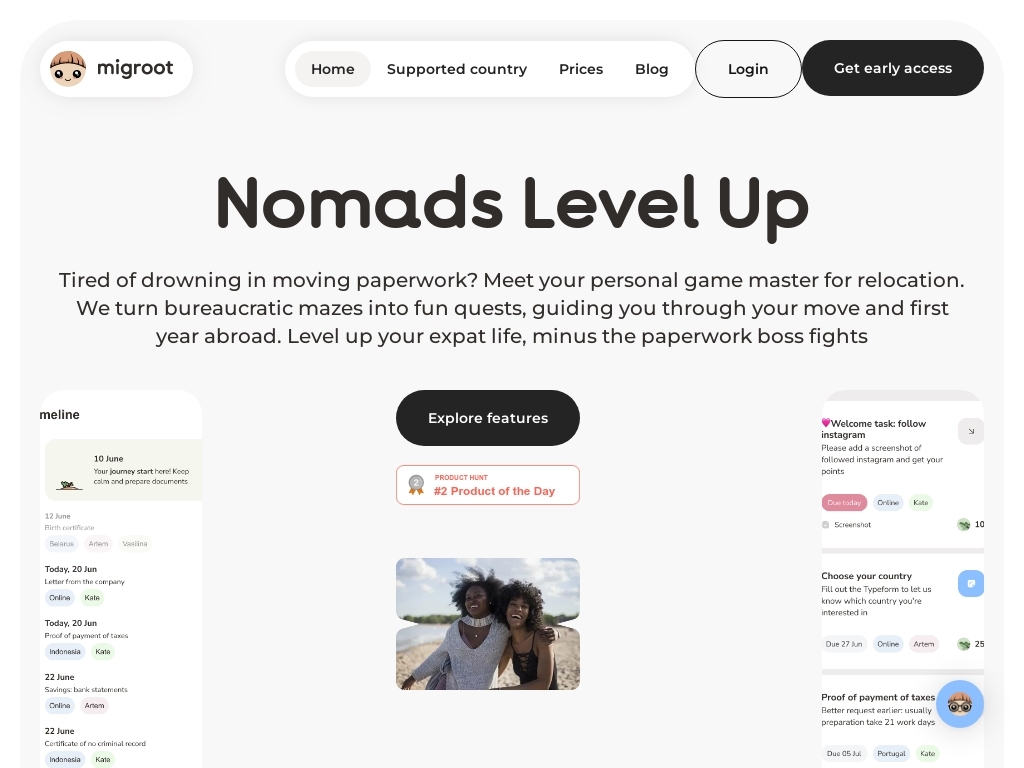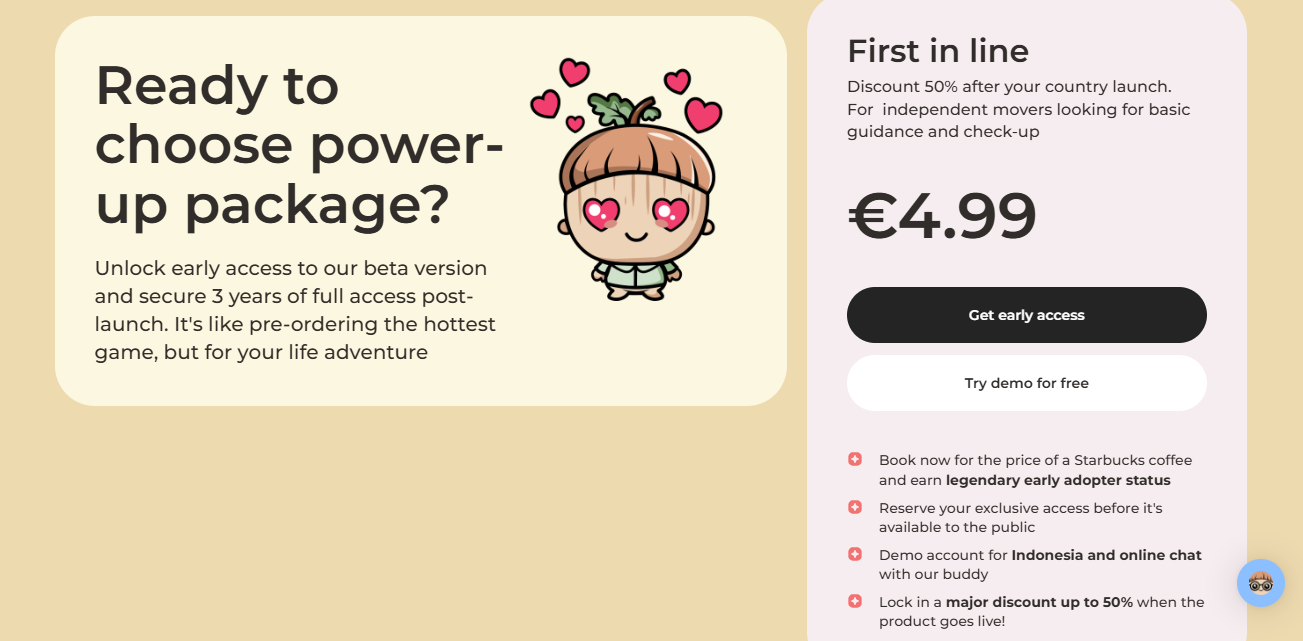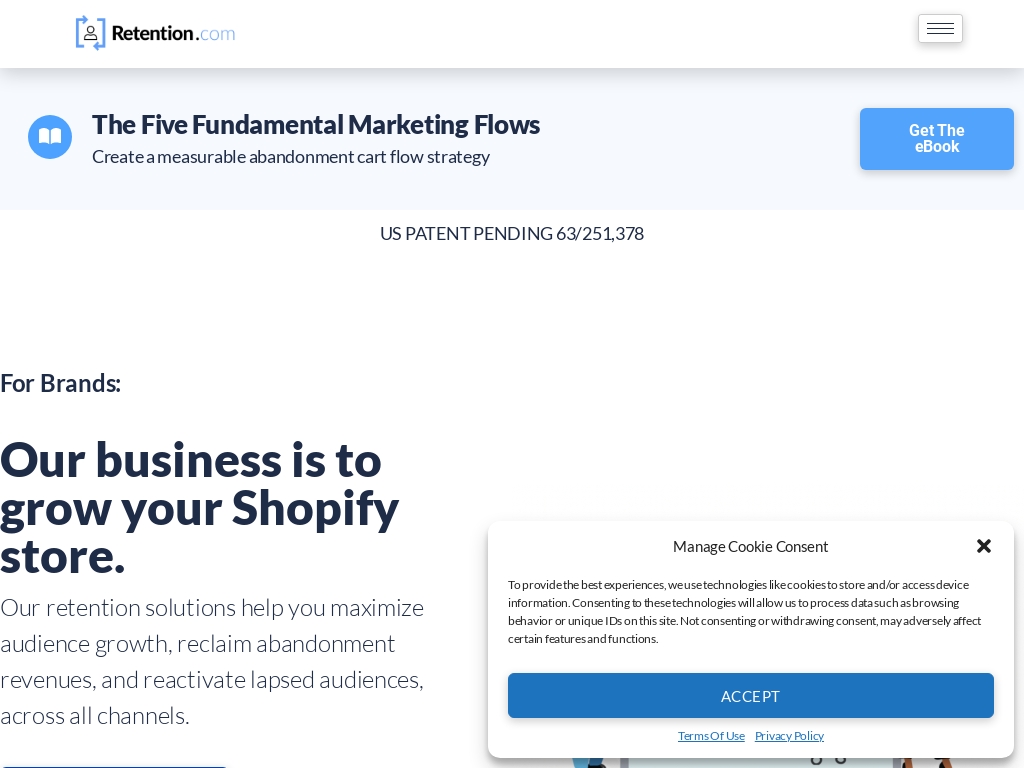
How 5 Founders Turned Visa Applications into a Top Product Hunt Hit
Who is Kate Prasniak?
Kate Prasniak, one of Migroot's founders, is a serial expat who gained firsthand experience navigating immigration challenges while living in multiple countries and partnered with Maryna Dobrovolska to transform the tedious visa process into a fun, engaging experience.
What problem does Migroot solve?
Migroot turns the frustrating process of organizing visa paperwork into a fun, manageable task, saving you time and headaches during international moves.

Migroot Homepage

Founder-Market Fit
Skills
What skills did Kate Prasniak have that led to their success?
How did Kate come up with the idea for Migroot?
Kate and her partner Maryna were constantly grappling with immigration paperwork while moving between countries like Belarus, Poland, and Bali. This stressful experience highlighted a common frustration shared by many expats—navigating the complex bureaucracy of visa applications. They realized there was a palpable need for a solution that simplified this daunting process.
They took a creative approach by gamifying what is typically seen as a bureaucratic headache, transforming it into a game-like experience. Their hands-on research involved navigating their own international moves and gathering firsthand insights on what travelers find challenging. They refined the idea by testing it on children, ensuring it was straightforward enough for anyone to use, even when jetlagged.
The most significant challenge they faced was turning a necessity into an engaging experience. The key lesson they learned was that even the most mundane tasks can be transformed by adding an element of fun, which can drastically reduce stress and increase efficiency. This approach not only made the idea feasible but also validated the potential for Migroot to resonate with others facing similar bureaucratic challenges.
How did Kate Prasniak build the initial version of Migroot?
Migroot was developed as a game-like tracker to streamline the process of gathering necessary immigration documents, making the typically stressful task more engaging. The team behind Migroot built their MVP in just a month using a tech stack that includes Intercom for customer support, Google Cloud Platform for scalability and storage, and Webflow for the website design. During development, challenges included turning complex bureaucratic procedures into a gamified experience that was intuitive enough to be understood by users as young as seven years old. Testing and iteration were crucial; they regularly gathered user feedback to refine the interface and functionality, ensuring it was both comprehensive and easy to use. Despite the initial prototype being browser-based, the development team plans to expand to a web app, indicating an ongoing commitment to improving and expanding their service.
What was the growth strategy for Migroot and how did they scale?
Product Hunt
Migroot utilized Product Hunt effectively as a launch platform to gain visibility and traction. By focusing on building a community before their launch with a "Coming Soon" page, they were able to gather over 200 subscribers who showed genuine interest in their product. This step was crucial in signaling to Product Hunt's support team that Migroot had a substantial following leading to their ranking as the #2 Product of the Day.
Why it worked: Product Hunt is a popular community for tech enthusiasts and early adopters. By leveraging this platform, Migroot could reach a targeted audience that is keen on discovering new products. Additionally, engaging with the Product Hunt community beforehand helped to build relationships and gain authentic support during the launch, which was instrumental in generating momentum and visibility.
Community Engagement
Migroot emphasized the importance of being active within the Product Hunt community and broader founder communities. They focused on building genuine relationships over last-minute interactions. This engagement extended into actively inviting feedback and support from these communities when Migroot launched, which helped maintain momentum post-launch.
Why it worked: Engaging meaningfully with a community can foster a sense of belonging and support, which is invaluable during critical growth phases like a product launch. It creates a network of advocates who are more likely to share and support your product, leading to increased visibility and validation.
Word-of-Mouth and Feedback
The team at Migroot prepared personalized thank-you messages that included social links as a part of their "Thank You Strategy." This approach not only acknowledged the support of their early adopters but also encouraged them to continue sharing Migroot within their networks.
Why it worked: Personal touches in communication can foster loyalty and enhance the user experience, increasing the likelihood that early users will become long-term advocates. Encouraging and facilitating word-of-mouth through these thank-you notes helped maintain a buzz long after the initial launch.
LinkedIn Announcement
Migroot announced their launch on LinkedIn, targeting not just casual users but also professionals who might be dealing with the complexities of immigration paperwork themselves. This platform was used to capture the professional audience, leveraging LinkedIn's network effects to potentially reach a wider market.
Why it worked: LinkedIn is a platform for professionals looking for solutions to streamline their work life. By announcing their launch here, Migroot tapped into a segment likely to appreciate a tool that simplifies the cumbersome process of managing relocation documents. Using LinkedIn aimed directly at pragmatically-minded users, reinforcing Migroot’s mission to turn a tedious task into something engaging and manageable.
What's the pricing strategy for Migroot?
Migroot offers a free game-like visa document tracker, with a Beta subscription starting @ €4.99

Migroot Beta Pricing
What were the biggest lessons learned from building Migroot?
- Strategic Pre-Launch Planning: Before launching Migroot, the team secured over 200 subscribers from their 'Coming Soon' page. This strategy was crucial in generating genuine interest and getting noticed by the Product Hunt support team. For aspiring founders, engage early with your potential audience to build anticipation and support.
- Understand Platform Mechanics: The team learned the importance of verifying feature readiness a day before the launch. Without being featured, your product can't effectively compete for accolades like 'Product of the Day.' It's vital to understand the specific criteria and checkpoints of the platforms you're using.
- Value Community Engagement: Building real relationships within founder communities and places like Product Hunt is essential. Instead of rushing outreach efforts right before a launch, continuously engage and build a network that can provide support and feedback.
- Plan for Media Attention: Despite Migroot's success, they weren't fully prepared with their press materials when they hit #2 on Product Hunt. Always have your PR kit ready to handle media inquiries with well-prepared responses to maintain momentum and credibility.
- Gratitude Fuels Growth: The Migroot team implemented a strategy to send personalized thank-you messages with social links after their launch. This not only fosters goodwill but also sustains the growth momentum post-launch.
What platform/tools does Migroot use?
Discover Similar Business Ideas Like Migroot
|
|
Idea
|
Revenue
|
|---|---|---|
|
Retention
|
Retention is a SaaS platform helping e-commerce brands recover lost revenue.
|
$1.78M
monthly
|
More about Migroot:
Who is the owner of Migroot?
Kate Prasniak is the founder of Migroot.
When did Kate Prasniak start Migroot?
What is Kate Prasniak's net worth?
Kate Prasniak's business makes an average of $/month.
How much money has Kate Prasniak made from Migroot?
Kate Prasniak started the business in , and currently makes an average of .

Download the report and join our email newsletter packed with business ideas and money-making opportunities, backed by real-life case studies.

Download the report and join our email newsletter packed with business ideas and money-making opportunities, backed by real-life case studies.

Download the report and join our email newsletter packed with business ideas and money-making opportunities, backed by real-life case studies.

Download the report and join our email newsletter packed with business ideas and money-making opportunities, backed by real-life case studies.

Download the report and join our email newsletter packed with business ideas and money-making opportunities, backed by real-life case studies.

Download the report and join our email newsletter packed with business ideas and money-making opportunities, backed by real-life case studies.

Download the report and join our email newsletter packed with business ideas and money-making opportunities, backed by real-life case studies.

Download the report and join our email newsletter packed with business ideas and money-making opportunities, backed by real-life case studies.










